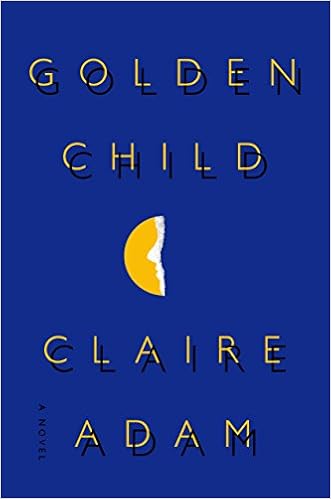 Clyde and Joy
Deyalsingh live in rural Trinidad with their 13-year-old twin sons, Peter and
Paul. The novel opens with Paul’s having
gone for a walk after school and not returning home. While Clyde waits and looks for his son, he
flashes back to the birth of his sons and their early years. Peter is the golden child who from an early
age has been acknowledged as a genius destined for greatness. Paul suffered from hypoxia at birth and was
almost immediately labeled as “slightly retarded” so there are few expectations
for his future. Though Paul struggles
with learning, Joy insists that the boys go to the same school so Peter can
look after Paul, though Clyde feels Peter should not be responsible for his
brother. This family ends up facing a Sophie’s Choice dilemma.
Clyde and Joy
Deyalsingh live in rural Trinidad with their 13-year-old twin sons, Peter and
Paul. The novel opens with Paul’s having
gone for a walk after school and not returning home. While Clyde waits and looks for his son, he
flashes back to the birth of his sons and their early years. Peter is the golden child who from an early
age has been acknowledged as a genius destined for greatness. Paul suffered from hypoxia at birth and was
almost immediately labeled as “slightly retarded” so there are few expectations
for his future. Though Paul struggles
with learning, Joy insists that the boys go to the same school so Peter can
look after Paul, though Clyde feels Peter should not be responsible for his
brother. This family ends up facing a Sophie’s Choice dilemma.
The time period is not
specifically mentioned but references to pop culture (like the television show Dallas) and the petrochemical industry suggest
the 1980s. What is emphasized is that
there is a great deal of uncertainty in the world of the Deyalsingh family. Because Clyde is not well-educated, his
opportunities are limited and so his economic situation insecure. There is also rampant lawlessness and
corruption. The Deyalsinghs, like
everyone else, have locked gates and guard dogs though these do not prevent a violent
burglary of their home. Violence, often
connected to drugs, is commonplace, and Clyde and Joy’s extended family is not
untouched.
The narrative focuses
on Clyde’s perspective. Clyde wants to
be a good father; he works hard to provide for his family and stays away from
any criminal activity. He is obsessed
with securing a good future for Peter, the “anointed one.” When Paul disappears, Clyde is worried though
he seems more angry; he sees Paul as a troublemaker who even “provoked the
bandits” and endangered Joy during the robbery, so his disappearance after an
argument is the behaviour Clyde expects.
Unfortunately, when Clyde is faced with making a life-altering choice,
focus shifts to other characters so his reasoning and his psychological
struggle are only superficially examined.
The perspectives of
Paul and Father Kavanagh, a priest at the school who takes an especial interest
in helping Paul, are also included.
Father Kavanagh disagrees with the label which has been attached to Paul,
and one of Paul’s fondest memories is that of Father Kavanagh telling him, “’It’s
very plain to see that you’re not [mentally retarded]. . . . Listen to me. You’re not.’”
From Paul’s perspective we see a shy, sensitive boy. He may be dyslexic but he is not incapable of
learning. A description of his sleeping arrangements
points out his gentle nature and his position in the family. He shares a bed with his brother: “He only has a narrow space at the edge of
the bed because Peter is taking up so much room. He could, in theory, kick him back over to
his side: that’s what Peter would do, if it was Paul taking up too much
space. But he doesn’t mind. He likes to watch the gentle rise and fall of
Peter’s back as he breathes.” It is
heart-breaking to read his observation that “Only Peter can please Daddy. Everything Peter does is perfect, and
everything he does is wrong.”
Peter’s point of view
is not really given. Including it would
have given the novel more depth. How
does it feel to be the favourite child?
Does he resent having to look after his brother? Joy’s perspective is also missing. Considering the involvement of her brother in
her family’s affairs, does she feel particularly betrayed? Family dynamics are central to the book but
insufficiently explored.
The pacing is
uneven. The novel begins very slowly and
I found myself wondering about the nature of the main conflict. Only two-thirds into the novel does this
become clear, and then the pace picks up.
Unfortunately, at this point there’s a disturbing scene involving Treats
and Paul that seems gratuitous. The end
comes almost too quickly but certainly leaves the reader questioning what
he/she would do in similar circumstances.
This is not a bad
novel. It could, however, be a much
better novel if certain aspects were more developed. Given its short length, this book feels
almost like an outline.
Note: I received a digital galley from the
publisher via NetGalley.
No comments:
Post a Comment